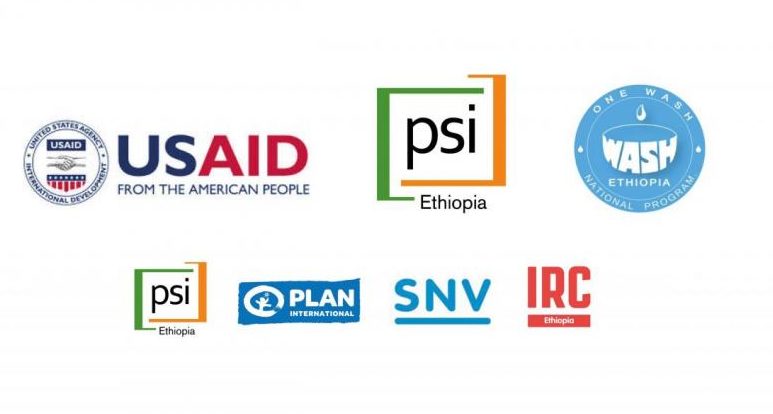“We had a lack of understanding on WASH implementation and coordination. However, the series of trainings, particularly on WASH sector planning, budgeting, monitoring, evaluation and reporting by the Transform WASH project helped us to better understand WASH and the importance of coordinating WASH actors initiatives in the woreda” said Mesfin Thomas, Humbo woreda [1] (district) head, Southern Nations Nationalities and Peoples Region.
Most sector actors tend to implement WASH activities independently, this in spite of the progress Ethiopia has made in operationalising a sector-wide approach through the One WASH National Programme (OWNP) [2] (WIF, 2013).
Due to the absence of active and participatory platforms for coordination, WASH sector actors – woreda head, offices of women and children’s affairs, health, education, water, agriculture and finance – have shown a reluctance to implement WASH activities together. Regrettably, this lack of coordination slowed down progress in reaching Growth and Transformation Plan (GTP II) targets for access to water supply and improved sanitation.
Designing a capacity strengthening plan that inspires
Transform WASH is a collective initiative with the aim to reduce preventable deaths and illnesses linked to diarrheal disease; particularly among children under five. Capacity building initiatives form part of the project’s strategy, but are only relevant in so far as capacity needs of target audiences are well understood. As a first step, the Transform WASH team conducted participatory WASH sector capacity gaps assessments in the regions of Amhara, Benishangul Gumz, and Oromia.
Overall findings identified gaps in planning, financing, coordination, monitoring and evaluation (M&E) systems, and partnership with private sector. And disconcertingly, adds Mesfin Thomas, chairman of the Woreda WASH Team, WASH sector initiatives were not always aligned with the Humbo woreda’s trajectories.
Based on these findings, SNV [3] co-designed a capacity building guideline plan, and trained national and sub-national governments on the subjects of WASH sector planning, budgeting, coordination, implementation, monitoring and reporting.

How participatory processes revitalise the commitment to persevere
Commenting on the process of informative research and co-design, Mesfin Thomas confirmed that, “in the process we have identified our gaps in sectoral integration and access to clean drinking water, sanitation and hygiene”.
After the training, the Woreda WASH Team jointly reviewed its five-year WASH strategic plan, developed an annual action plan, and reaffirmed its commitment to revitalise integration efforts and to actively execute its duties and responsibilities [4], based on the action plan and Memorandum of Understanding (MoU) signed by the team. Coupled with a more harmonised and aligned WASH implementation strategy, this renewed energy has contributed to increasing community demand for sanitation- and hygiene-related products and services.
About Transform WASH
USAID Transform WASH aims to improve water, sanitation, and hygiene (WASH) outcomes in Ethiopia by increasing market access to and sustained use of a broader spectrum of affordable WASH products and services, with a substantial focus on sanitation.
Transform WASH achieves this by transforming the market for low-cost quality WASH products and services: stimulating demand at the community level, strengthening supply chains, and improving the enabling environment for a vibrant private market.
USAID Transform WASH is a USAID-funded activity implemented by PSI in collaboration with SNV, Plan International, and IRC WASH. The consortium is working closely with government agencies, including the Ministry of Health, the Ministry of Water, Irrigation and Electricity, the One WASH National Program, and regional and sub-regional governments.

[1] Humbo is one of the nine USAID Transform WASH intervention woredas in SNNPR.
[2] One WASH National Programme (OWNP) aims to coordinate and harmonise efforts of all WASH sector actors under a single framework. OWNP employs a framework of integration, alignment, harmonisation and partnership modality (WIF, 2013).
[3] Within Transform WASH, SNV is responsible for capacity building interventions at sub-national government level. SNV aims to strengthen the capacity of local authorities in effective WASH decision-making, management, and in sustaining the provision of sanitation services and sanitation marketing; where there is little implementation.
[4] The Woreda WASH Team is responsible for undertaking follow-up activities on implementation and budget utilisation, providing timely support, and cascading capacity building activities at kebele level.




















